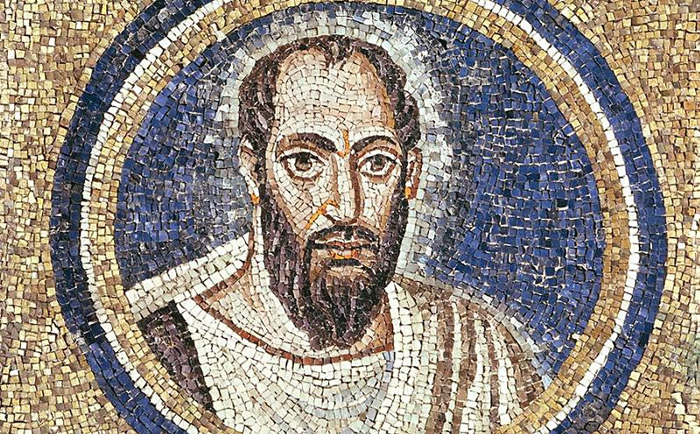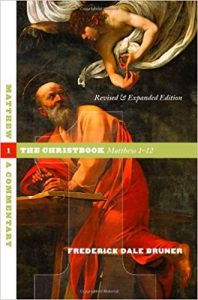 James 2:13
James 2:13
For judgement will be without mercy to anyone who has shown no mercy; mercy triumphs over judgement.
Although we examined this verse last week, I want to linger over it another week, and particularly the idea of mercy which makes its first appearance in James’ letter, in this verse. Some commentators, noting the proverbial nature of the verse that we discussed last week, see it as a free-floating proverb that has little connection with the passage overall. For example, Victor Furnish suggests that the verse is “a separable maxim only loosely connected with the paragraphs to which it has been attached” (Furnish, The Love Command in the New Testament, 178). Peter Davids agrees that 2:13 “originally existed as a free-floating proverb” (118), but disagrees with Furnish’s conclusion that it has little or no connection to the context. Regardless of whether the verse had a pre-history as a separate proverb, I must agree with Davids against Furnish; this verse brings the entire section of 2:1-13 to its climax, despite the fact that James has not previously used the term “mercy.” What is the origin of this term, and what significance does it have in this context?
According to Canales, “mercy has its roots in the OT idea of the infinite love of God for a helpless and needy covenantal partner” (Dictionary of the Later New Testament & Its Developments, 736). In perhaps the most central creedal declaration of the divine character given in the Old Testament we hear, “The Lord, the Lord, a God merciful and gracious, slow to anger, and abounding in steadfast love and faithfulness” (Exodus 34:6-7). This foundational declaration is cited and repeated time and again in the Old Testament as the cornerstone of the divine character (see, for example, Nehemiah 9:17; Psalm 103:8-17; 145:8-9; Joel 2:13; Jonah 4:2; Nahum 1:2-3).
The Old Testament narrative of redemption therefore identifies God as a merciful God who has shown mercy to his people. This narratival portrayal of the divine character provides a twofold foundation for mercy as a moral imperative for the people of God. First, just as God is characterised by mercy, so God’s people are to be merciful. The imitatio Dei (imitation of God) is a key principle of Old Testament ethics. Second, just as God has been merciful to his people, so they, as the recipients of his mercy, are to show mercy in their relations with others. This moral imperative is particularly evident in several prophetic texts:
He has told you, O man, what is good; and what does the Lord require of you but to do justice, to love mercy, and to walk humbly with your God (Micah 6:8)
The word of the Lord came to Zechariah, saying: Thus says the Lord of hosts: Render true judgements, show kindness and mercy to one another; do not oppress the widow, the orphan, the alien, or the poor; and do not devise evil in your hearts against one another (Zechariah 7:8-10).
The Old Testament witness to the mercy of God and the concomitant responsibility that this lays on God’s people comes to expression especially in the teaching of Jesus. Jesus’ fifth beatitude is the positive equivalent of James 2:13: “Blessed are the merciful, for they shall receive mercy” (Matthew 5:7). Here, a merciful life grounds a promise of mercy in the judgement. This promise is made explicit in Matthew 18 in Jesus’ parable of the Unforgiving Servant, where the king says to the wicked servant, “Should you not also have had mercy on your fellow slave, in the same way that I had mercy on you?” (verse 33). Being a recipient of divine mercy obliges the recipient to show mercy to others in the same way that God has shown mercy to them. In Matthew 5:48 Jesus admonishes his disciples to “be perfect as your heavenly Father is perfect,” thus insisting that God’s character is the measure of the Christian’s character. Significantly, Luke’s record of Jesus’ saying is, “Be merciful, just as your Father is merciful” (Luke 6:36). In these samples of Jesus’ teaching, the twofold foundation for Old Testament ethics is reiterated.
Further statements in the gospels indicate that Jesus understood mercy as a central characteristic of discipleship. In Matthew 9:17 he challenges his opponents saying, “Go and learn what this means: ‘I desire mercy, not sacrifice.’” Later in the same gospel he rebukes them, “But if you had known what this means, “I desire mercy and not sacrifice”, you would not have condemned the guiltless” (Matthew 12:7). He tears strips off them in Matthew 23:23: “Woe to you, scribes and Pharisees, hypocrites! For you tithe mint, dill, and cummin, and have neglected the weightier matters of the law: justice and mercy and faith. It is these you ought to have practised without neglecting the others.” Finally, in his parable of the Good Samaritan, Jesus asks,
“Which of these three, do you think, was a neighbour to the man who fell into the hands of the robbers?” He said, “The one who showed him mercy.” Jesus said to him, “Go and do likewise” (Luke 10:36-37).
All these texts show clearly that for Jesus, mercy is a central characteristic of both the Jesus tradition and the life of his followers as he envisaged it. The final example from the parable of the Good Samaritan is particularly significant because (a) it displays the practical nature of mercy, and (b) ties this practice of mercy to the Leviticus love commandment that one must love their neighbour.
Returning to James 2, then, I affirm that James’ words in verse thirteen have the closest connection with the preceding verses. In the face of partiality and prejudice within the congregation, in which the poor specifically, have been dishonoured, James insists on love of neighbour. This love, however, is to take the practical form of mercy. Mercy is that form of love which visits the orphan and the widow in their distress (1:27). That is, mercy is not simply an attitude but an action. It does not remain aloof and uninvolved in the face of the affliction and distress of others but is moved to help in practical and sometimes costly ways. It images, however poorly, the mercy of the merciful God who entered into our brokenness and misery making it his own in order to lift us into fellowship with himself.
Blessed are the merciful, for they shall obtain mercy.
Mercy triumphs over judgement.
 This morning I preached an overview message on Jesus’ Beatitudes from Matthew’s Gospel. In my preparation for the sermon I came across the following comparison in F. Dale Bruner’s wonderful commentary on Matthew’s Gospel:
This morning I preached an overview message on Jesus’ Beatitudes from Matthew’s Gospel. In my preparation for the sermon I came across the following comparison in F. Dale Bruner’s wonderful commentary on Matthew’s Gospel: Matthew’s Jesus most closely approaches Paul. For as we have seen in all the Poor Beatitudes, particularly in Matthew’s moral construal (“poor in spirit,” “hungering and thirsting for righteousness”), it is the consciously unright or unrighted who are righted, it is the out who are brought in, and now it is those who want a righteousness they do not have who are promised they will have it. To say this is not to Paulinize Matthew; it is to see Paul and Matthew meeting at center: God is the giver of the kingdom and of the kingdom’s righteousness as well. This kingdom is still largely future, but, as we have seen, the future kingdom that Jesus preaches is already breaking in. All four Need Beatitudes say this; all four Beatitudes—and now I audaciously Paulinize—preach justification by faith; all four give God to those who are unable to get God by themselves.
Matthew’s Jesus most closely approaches Paul. For as we have seen in all the Poor Beatitudes, particularly in Matthew’s moral construal (“poor in spirit,” “hungering and thirsting for righteousness”), it is the consciously unright or unrighted who are righted, it is the out who are brought in, and now it is those who want a righteousness they do not have who are promised they will have it. To say this is not to Paulinize Matthew; it is to see Paul and Matthew meeting at center: God is the giver of the kingdom and of the kingdom’s righteousness as well. This kingdom is still largely future, but, as we have seen, the future kingdom that Jesus preaches is already breaking in. All four Need Beatitudes say this; all four Beatitudes—and now I audaciously Paulinize—preach justification by faith; all four give God to those who are unable to get God by themselves. James 2:13
James 2:13